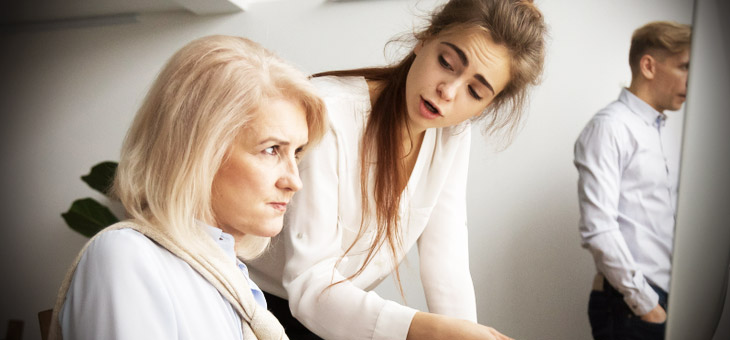Older Australians aren’t being paranoid when they complain about ageism in the workplace or in society in general – it’s a real thing – according to psychology professor Mike Nicholls of Flinders University.
Earlier this year, The Benevolent Society conducted a survey of 1005 Australians aged 50 and over to learn their views on ageism and age discrimination in the workplace.
Of those surveyed, 93 per cent were working: around half in full-time roles and the other half part time.
Perhaps surprisingly, 31 per cent of those surveyed said they had never experienced ageism and almost 40 per cent went as far as saying that they didn’t know what ageism was.
However, some of them said that they had experienced ageism in some form, be it age-related jokes or comments, or being treated as though they didn’t fully understand things.
Just on 35 per cent said they were excluded from training, from conversations or from conferences.
Those numbers relate specifically to those currently employed. Older people looking for work were more likely to report that they definitely experienced ageism while seeking employment.
According to the survey, while seeking employment, some were told:
- no one can work here if they’re born before 1960
- I was told I was too old to be employable
- I’m not going to be hired because of my age
- when are you going to retire?
- not sure how you’d go working with younger people on the team
- you’re too old and we don’t hire people with disabilities.
Around 37 per cent of those who experienced ageism said it adversely affected their confidence and 12 per cent gave up looking for work altogether.
“Unfortunately, this goes on every day in many workplaces. Even though it’s illegal to discriminate on the basis of age, people are told to their faces: “You’re too old”. It is very distressing that many people feel they can’t fight it,” said The Benevolent Society’s Director Campaigns – Older Australians, Marlene Krasovitsky.
“Changing attitudes and behaviours takes time.”
Prof. Nicholls suggests the root cause for ageism stems from the dating game, saying that humans “automatically” prefer the company of people their own age rather than someone older.
“While our response is also affected by ‘high-level’ social conditioning, we still seem to have an in-built subconscious reaction to even an ambiguous face or figure,” explained Prof. Nicholls.
“This explains why young people tend to hang around with other young people, while older people associate with old and young.”
Prof. Nicholls used the image below as an example, explaining that as part of a study in the US most people who viewed this image identified a woman closer to their own age.
“The effect of this in society is that it makes it more difficult to encourage or even enforce inclusive behaviours, even in the workplace,” he said.
What do you see in this image? Have you experienced ageism in the workplace? Or do you encounter ageism in your community? Why not share your experience with our members?
Related articles:
Older workers vital to nation’s growth
The ageing revolution crisis
Crusading for dignity in retirement

